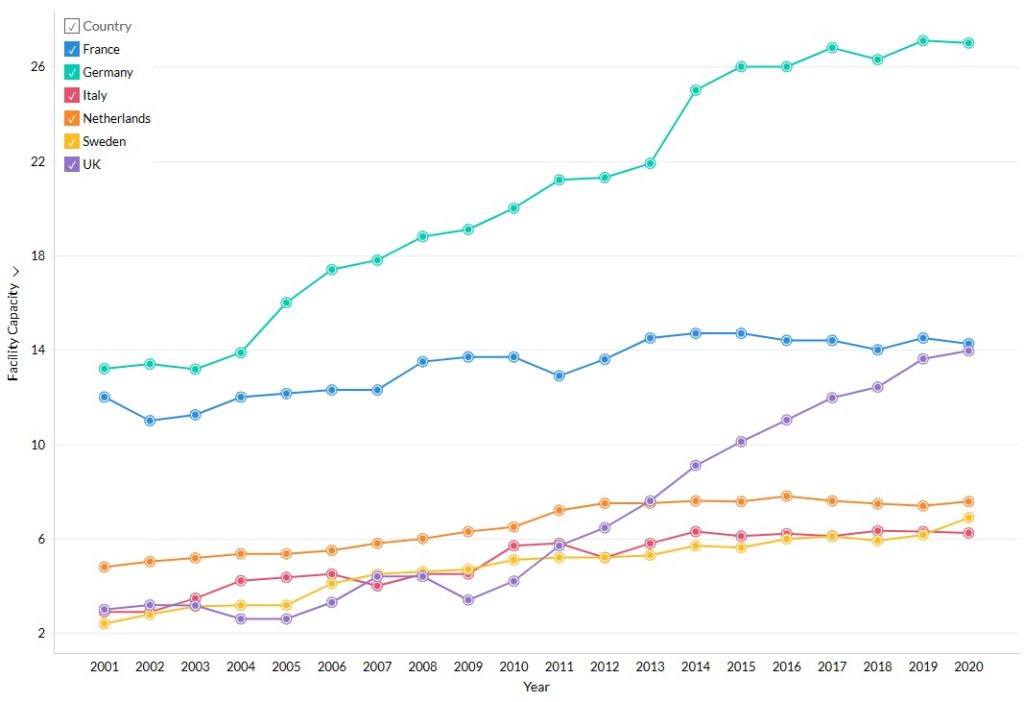UK EfW Capacity Expansion Noted By CEWEP
Each year, the Confederation of European Waste-to-Energy plants (CEWEP) publishes a map of waste to energy plants in Europe based on data from CEWEP members and national sources. The latest overview, presenting information up to and including 2020, gives a picture of recent stability in the sector with only the UK showing a significant rise in capacity in the past five years:

The UK has been playing catch-up in this regard, transitioning from a scenario of disposing 52 million tonnes into non-inert landfill in 2001 down to 24 million tonnes in 2021. Conversely, EfW treatment has risen from 3 million tonnes in 2001 up to 19 million tonnes in 2021. There are a number of additional facilities under construction and still others in the planning pipeline. All the while, effort to recycle more gather speed, with policy initiatives such as compulsory kerbside food waste collections and the Deposit Return Scheme (DRS) for plastic bottles and tin cans (along with glass bottle in Wales and Scotland). Efforts are made to reduce waste, make packaging less bulky and wasteful and nudge the UK in the direction of a circular economy. There is, therefore, a balance to be struck between meeting the present need and keeping an eye on broader trends in an era of rapid and somewhat unpredictable change.
At the moment, the UK a provides a useful service to many EfW facilities on the continent where they have more capacity than available waste feedstock. Through the processing and export of Refuse-Derived Fuels (RDF), the UK sends 1.5 million tonnes of packaged fuel to hungry facilities overseas. Were we to reach the tipping point where there is too much capacity versus feedstock in the UK, how would that need be met? We would need to either import RDF from overseas (although the continental supply is limited, which is precisely the reason that the UK has provided the RDF production service) or cannibalise materials that might otherwise go to a recycling route. This latter scenario would be contrary to all efforts to keep resources in long-term use, undermining the fundamental principles of a circular economy. EfW expansion in the UK is likely to slow, with moratoria on new EfW approvals on the table in both Wales and Scotland. As recently as January, it was announced that no such moratorium was planned for England … but these are very changeable days in England and anything could happen before the end of the year. Meanwhile, on the continent, there is no need for a EfW expansion (not least because there would not be enough domestic feedstock to supply them); equally, there are no plans to switch them off and mothball them because they presently supply very reliable and, importantly, non-Russian energy.
Footprint Services provides an interactive dashboard to analyse the CEWEP data which can be accessed here.
The latest CEWEP EU EfW map can be found here.
